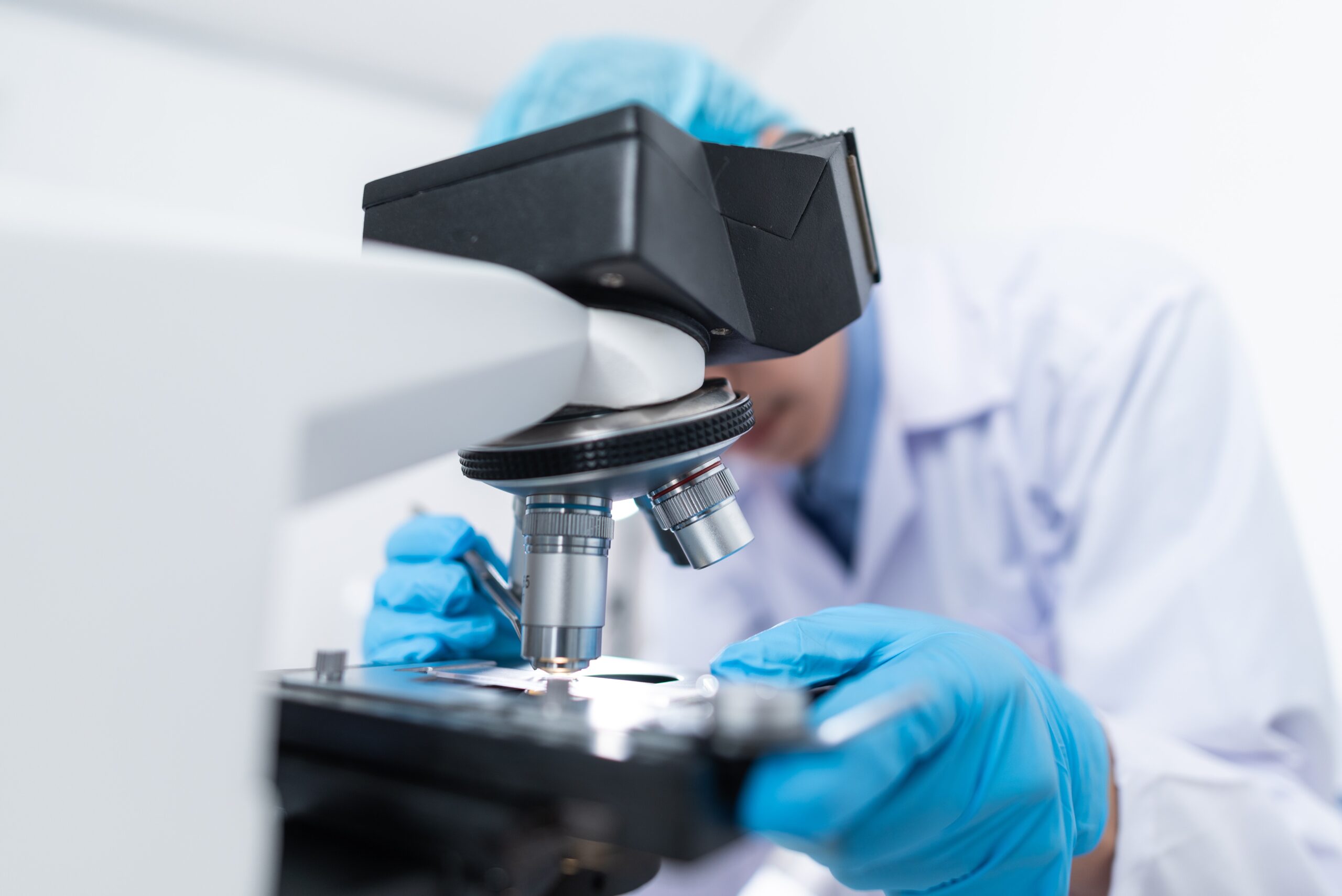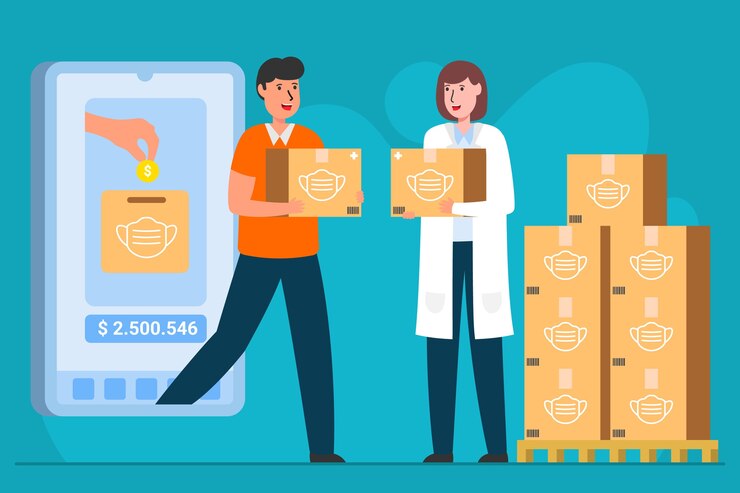The Silent Revolution: How Medical Couriers Empower Research
- 1 Bridging the Gaps: Medical Couriers as the Unsung Heroes
- 1.1 Beyond just speed and accuracy, medical couriers specialize in ensuring
- 1.2 The Digital Shift: Modernizing Medical Deliveries
- 1.3 Navigating the Complex World of Clinical Trials
- 1.4 The Silent Role in Biotech and Pharma Innovations
- 1.5 Securing the Lifeline: Blood Banks and Organ Transplants
- 1.6 Beyond Medicine: Veterinary Clinics and Fertility Institutes
- 1.7 Homecare and Retail Pharmacies: The New Frontiers
- 1.8 Charting the Future: The Road Ahead for Medical Couriers
- 2 In conclusion,
The engine of medical research hums relentlessly, pushing boundaries and creating breakthroughs that hold the promise of a healthier tomorrow. But powering this engine is an intricate network of processes, of which medical couriers are a pivotal, albeit often overlooked, component. These couriers act as essential links, ensuring that medical specimens, medications, and critical research materials are transported safely and promptly.
Bridging the Gaps: Medical Couriers as the Unsung Heroes
At the heart of every medical discovery are countless hours of lab work, analyses, and trials. Each of these processes requires various materials, from patient samples to specific chemical compounds, all of which must be delivered with precision. Delays or mishaps in these deliveries could compromise the integrity of the research, making the role of couriers crucial.
Beyond just speed and accuracy, medical couriers specialize in ensuring

the sanctity of the materials they transport. This means preserving the biological viability of specimens or ensuring that medications remain at the correct temperature. Their expertise in this niche domain elevates their role from mere transportation to a critical component of the research ecosystem.
Moreover, the scope of their deliveries isn’t limited to just labs and research facilities. Medical couriers connect hospitals, clinics, pharmacies, and even patients, creating a seamless flow of materials and information. This interconnectedness fosters collaboration and accelerates research, pushing medical science forward.
The Digital Shift: Modernizing Medical Deliveries
The realm of medical courier services has undergone a significant transformation, driven primarily by technological advancements. Digitization has ushered in a new era of efficiency, transparency, and accountability, making the courier process more streamlined than ever. With the advent of sophisticated tracking systems, real-time location, and status updates have become the norm, offering peace of mind to researchers awaiting critical materials.
Furthermore, the integration of AI and machine learning has added a layer of predictive analysis to the courier process. This means optimizing routes based on traffic data, predicting potential delays, and rerouting packages as needed. Such proactive measures not only ensure timely deliveries but also contribute to reducing operational costs.
Order placement and management have also been enhanced. Platforms that offer intuitive interfaces allow for easy order placements, with transparent tracking features and comprehensive order histories. One such exemplary platform is carGO Health. As a leading on-demand medical courier in NYC, carGO Health epitomizes the modern-day courier service with its one-stop-shop experience, ensuring that from pickup to delivery, every step is seamless.
This digital revolution isn’t merely a matter of convenience. In the high-stakes world of medical research, where delays can mean setbacks spanning months or even years, these technological integrations are changing the game. They’re ensuring that research progresses unhindered, bringing medical innovations closer to fruition.
Navigating the Complex World of Clinical Trials

One of the most intricate aspects of medical research is clinical trials. These trials, which test the efficacy and safety of new treatments, are multi-faceted operations that span various locations, from labs to patient homes. The logistics of managing clinical trial materials, therefore, is a task of immense complexity, requiring specialized expertise.
Clinical trial materials often have very specific storage and transportation requirements. Some need to be kept at sub-zero temperatures, while others might be sensitive to light or humidity. Ensuring that these materials reach their destination without compromising their integrity is a task of utmost importance, and one that medical couriers are perfectly equipped to handle.
Moreover, clinical trials often operate on tight schedules. Whether it’s delivering medication to a trial participant or transporting patient samples to a lab for analysis, punctuality is key. Any delay can jeopardize the trial’s timeline, potentially setting back research by significant margins.
Additionally, the documentation involved in clinical trial deliveries is extensive. Given the regulatory oversight on clinical trials, every delivery must be meticulously documented, ensuring transparency and accountability. Medical couriers, with their specialized training, ensure that all regulatory norms are adhered to, making them indispensable allies in the world of clinical research.
The Silent Role in Biotech and Pharma Innovations

Behind the groundbreaking medications and therapies churned out by the biotech and pharma industries is an intricate web of research and development activities. These industries, driven by innovation, rely heavily on the swift and secure movement of materials, from raw compounds to synthesized drugs, and here is where medical couriers come into play.
The biotech industry, in particular, often deals with living organisms, be it cultures of bacteria or human cell samples. The transportation of these materials is nothing short of a Herculean task, requiring a deep understanding of their biological needs. Medical couriers, with their specialized equipment and training, are perfectly equipped to handle these delicate shipments.
Pharmaceutical research, on the other hand, often requires the movement of chemical compounds. Some of these might be volatile, while others could be rare and extremely valuable. Ensuring their safe and secure transportation becomes paramount, making the role of couriers critical.
Moreover, with the rise of personalized medicine, the need for customized deliveries has surged. Whether it’s delivering a specially formulated drug to a patient or transporting a patient’s genetic material to a lab for analysis, medical couriers are at the forefront, enabling these medical marvels.
Securing the Lifeline: Blood Banks and Organ Transplants

Blood banks and organ transplant facilities represent two areas of the medical sector where time is of the essence. The window for the successful transplantation of organs is incredibly narrow, and blood products have strict storage and transportation requirements. It’s within these high-pressure scenarios that the true value of medical couriers shines brightly.
Blood products, including whole blood, platelets, and plasma, have stringent temperature requirements. Any deviation from these can render the blood unusable, potentially jeopardizing patient lives. Medical couriers, equipped with temperature-controlled transportation units, ensure the viability of these critical products.
Organs for transplantation present an even more significant challenge. The window for successful transplantation is often just a few hours, making speed and efficiency crucial. Medical couriers, trained for such high-stakes deliveries, ensure that these organs reach their destinations in the shortest possible time, maximizing the chances of successful transplantation.
Moreover, the transportation of organs isn’t just about speed. Ensuring that the organ remains viable during its journey is equally critical. This means maintaining optimal temperature, humidity, and even ensuring minimal physical jostling. The specialized equipment and training that medical couriers possess come into play here, making them invaluable assets in the organ transplantation process.
Furthermore, with the increasing global interconnectedness, organ transplants sometimes require international logistics. This adds layers of complexity, from navigating customs and regulatory requirements to coordinating with international medical facilities. Medical couriers, with their vast networks and expertise, ensure that even these complex operations go off without a hitch, saving countless lives in the process.
Beyond Medicine: Veterinary Clinics and Fertility Institutes

Medical courier services aren’t restricted to just human healthcare. Veterinary clinics and fertility institutes represent two segments that rely heavily on these services, underscoring the breadth of their importance. From transporting animal samples for diagnosis to delivering frozen embryos to fertility centers, the silent revolution of medical couriers touches myriad areas.
Veterinary clinics, especially those specializing in exotic animals or large livestock, often require specialized diagnostics. These might not always be available on-site, necessitating the transportation of samples to specialized labs. The safety and speed with which these samples are delivered can directly impact the well-being of the animals in question, making the role of medical couriers crucial.
Fertility institutes, on the other hand, deal with the delicate task of handling and transporting embryos, sperm, or ovum. These biological materials have extremely specific storage and transportation requirements. Any compromise on these can have far-reaching consequences, not just scientifically but also emotionally for the hopeful parents-to-be. Medical couriers, with their expertise, play a silent yet significant role in the fertility journey of countless individuals.
Furthermore, the regulatory landscape for fertility treatments is intricate, often varying from one jurisdiction to another. Ensuring that all shipments comply with these regulations while maintaining the biological integrity of the materials is a task that medical couriers handle with finesse.
Homecare and Retail Pharmacies: The New Frontiers
The landscape of healthcare is continuously evolving, and two areas witnessing significant growth are homecare and digital retail pharmacies. As more patients opt for treatments in the comfort of their homes and the convenience of online pharmacy orders surges, the demand for reliable and swift medical courier services has skyrocketed.
Homecare treatments, especially for chronic ailments or post-operative care, often require regular deliveries of medications, equipment, or monitoring devices. Ensuring that these are delivered punctually and in perfect condition becomes critical for the well-being of the patient. Medical couriers, with their extensive networks and capabilities, are at the forefront of this shift, ensuring that homecare doesn’t compromise on quality.
Digital and retail pharmacies, buoyed by the growth of e-commerce, have expanded rapidly. However, unlike other e-commerce segments, pharmaceutical deliveries have specific challenges, from temperature control to ensuring that medications aren’t compromised during transit. Medical couriers, with their specialized expertise, are bridging this gap, ensuring that even as pharmacies go digital, the sanctity of the medications remains uncompromised.
Moreover, with the rise of telemedicine and virtual consultations, the need for delivering prescriptions directly to patients has surged. Medical couriers are filling this gap, making healthcare more accessible and convenient for patients across the globe.
Charting the Future: The Road Ahead for Medical Couriers

As the world stands on the cusp of new medical breakthroughs and as healthcare becomes more personalized and accessible, the role of medical couriers is set to become even more central. Their expertise, networks, and capabilities will be crucial in shaping the healthcare landscape of the future.
Innovations in drone technology, for instance, could revolutionize how critical deliveries, like organs for transplantation, are handled. With drones, the challenges of urban traffic or remote accessibility could be mitigated, ensuring faster and more efficient deliveries.
Moreover, as the world grapples with challenges like climate change, the emphasis on sustainable and eco-friendly transportation will grow. Medical couriers will need to innovate, adopting greener technologies and practices, ensuring that even as they facilitate medical marvels, they remain stewards of the environment.
The integration of advanced technologies, from AI-driven route optimizations to blockchain-based delivery verifications, will further enhance the efficiency and transparency of the courier process. As these technologies mature, they will redefine the medical courier landscape, making it more resilient, agile, and responsive to the ever-evolving needs of the healthcare sector.
In conclusion,
while medical couriers might operate behind the scenes, their silent revolution is empowering research, saving lives, and shaping the future of healthcare. Their role, though often unsung, is indispensable, and as the future unfolds, their importance is only set to grow.

















